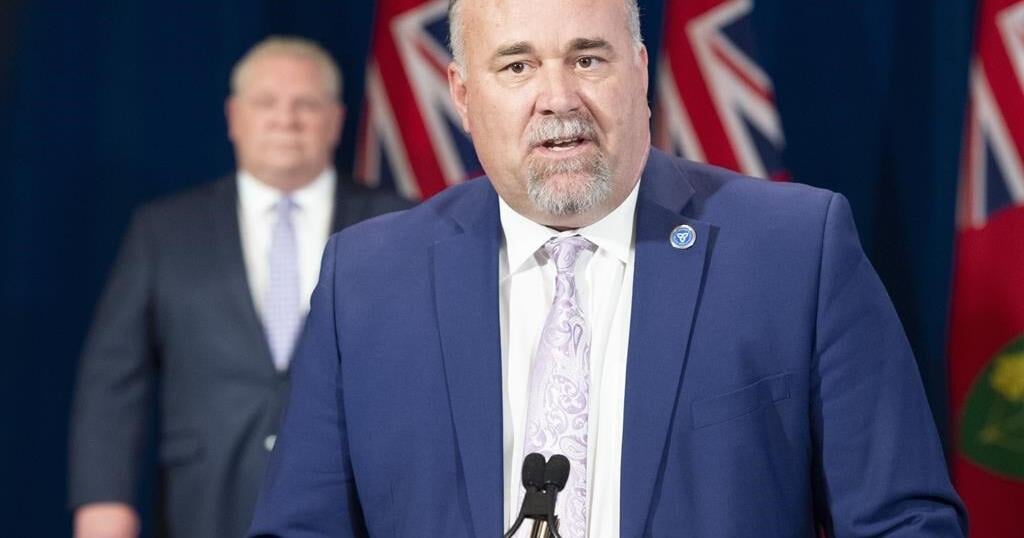TORONTO – Ontario child-care operators in the national $10-a-day program will soon be compensated in a way the province says will cover the true cost of providing care, after many said they were struggling to keep their doors open under the current structure.
Education Minister Todd Smith is set to announce a long-delayed new funding formula Thursday, saying he thinks the new formula will prevent closures and give operators certainty and stability.
“Given the feedback and the extensive consultation that’s taken place on the new funding formula, we’re pretty comfortable that those who are operating and those who want to operate are going to be able to do so in the province, creating those much needed spaces that families are looking for,” he said in an interview.
The new funding structure, which will come into effect Jan. 1, also comes with an announcement that as of the same day the fees parents pay will be further reduced. They have already come down about 50 per cent to an average of $23 a day and next year will fall to an average of $19, and capped at $22.
Those will be cut further to an average of $10 a day by March 2026, a date pushed back from an earlier pledge of September 2025.
The updates to how operators are compensated for lower parent fees, however, do not come with any new wage increases or a wage grid for early childhood educators, something advocates and many operators have said is key to not only expansion of the sector but also maintaining existing spaces.
But Smith said under the new funding formula, operators will have more flexibility with their spending, leaving some more able to boost staff pay.
Currently, the government is covering the amount of money parents are saving through reduced fees, but centres say just replacing revenue based on fees that were frozen in 2022 isn’t covering the true cost of providing care.
Officials say the new funding formula will ensure no operators in the $10-a-day program will experience a loss.
Starting next year, operators will get a main pool of funding based on several factors such as how many spaces they operate, how many children they serve in each age group, and the region in which they’re located.
Officials say about half of operators will have their costs fully covered by that amount, then there will also be a “legacy top up,” so existing operators in the program can pay expenses that exceed typical ones, such as higher catering costs to offer Kosher food or higher rent based on their location.
The formula will set an average eight-per-cent profit for for-profit operators and an average eight-per-cent surplus for non-profit operators.
The government also hopes the new structure will help new and existing operators to create more spaces, adding a growth top-up to the formula.
Ontario’s deal with the federal government committed the province to 86,000 new child-care spaces. But, so far, while there have been about 51,000 new spaces for the kids five and under, the age group covered by the national program, only 25,500 of those are within the $10-a-day system, officials say.
The growth top-up will give operators an amount of money for space creation based on their geographic region.
Smith and the Association of Municipalities of Ontario recently sent a joint letter to federal minister Jenna Sudds, saying a cap on for-profit spaces in Ontario’s deal is hampering child-care expansion in the province, and they are asking her to lift it.
Sudds said in her reply that delays in the province releasing its new funding formula have created uncertainty in the system, and she wanted to see that new structure as well as more data before making a decision.
The two ministers are set to soon meet to discuss the issue.
This report by The Canadian Press was first published Aug. 15, 2024.
